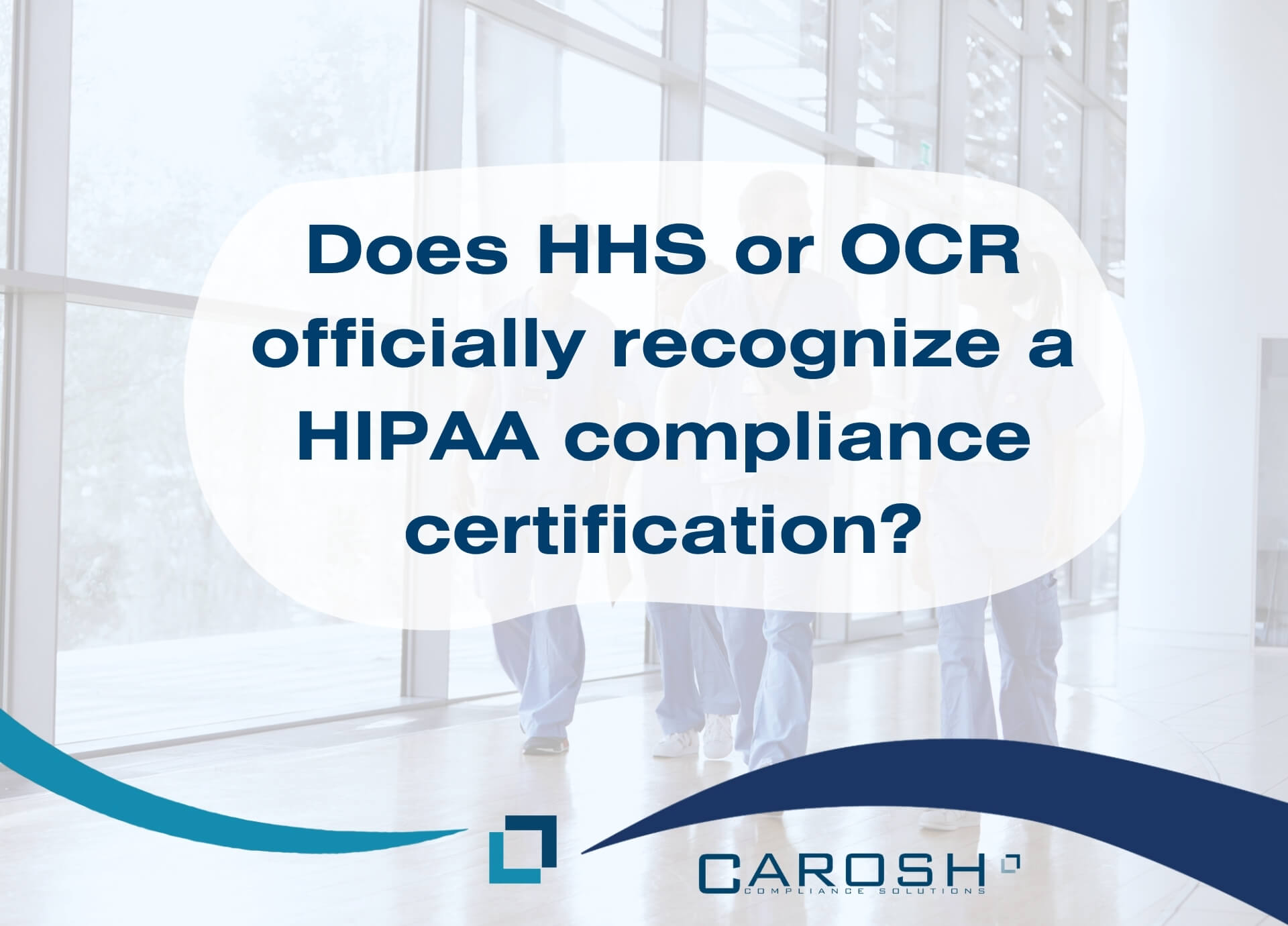
In the healthcare industry, adhering to the Health Insurance Portability and Accountability Act (HIPAA) is crucial for protecting patient health information. It’s essential to understand that the U.S. Department of Health and Human Services (HHS) or the Office for Civil Rights (OCR) does not officially recognize a HIPAA compliance certification. However, there are methods healthcare organizations can use to ensure and demonstrate compliance.
Self-Assessment and Internal Audits for HIPAA Compliance Certification
In the context of HIPAA compliance, self-assessment and internal audits within healthcare organizations encompass a series of detailed steps. These include a comprehensive review of all policies and procedures related to patient privacy, data security, and breach notification, ensuring they meet HIPAA standards. Audits also focus on evaluating employee training and awareness regarding HIPAA regulations, ensuring both initial and ongoing education aligns with current laws. Assessing physical and technical safeguards, such as security measures for electronic health records, encryption practices, and data transmission security is also vital. A key audit component is thorough risk analysis, identifying potential threats to patient data and evaluating their impact. Additionally, the organization’s capability to effectively respond to and manage data breaches or security incidents is critically reviewed. Proper documentation and record-keeping of all compliance efforts and incidents are essential for demonstrating adherence during external audits or investigations. By undertaking these comprehensive internal audits, healthcare organizations can maintain continuous compliance with HIPAA as well as add in compliance certification. Identifying areas for improvement, and mitigate risks to patient data privacy and security.
Third Party Audits for HIPAA Compliance Certification
Engaging external firms for HIPAA compliance and compliance certification audits offers a valuable, objective perspective on an organization’s adherence to HIPAA standards. These specialized firms bring expertise and impartiality, ensuring a thorough and unbiased evaluation of the organization’s HIPAA compliance status. During these audits, external auditors examine a range of factors including how patient information is managed, the effectiveness of privacy policies, the robustness of security measures, and the adequacy of employee training on HIPAA regulations. This external review can uncover potential compliance issues that internal assessments might miss, providing healthcare organizations with critical insights for enhancing their data protection practices.
Training and Policies
Implementing comprehensive HIPAA training programs for all employees is a critical step for healthcare organizations in ensuring compliance with HIPAA regulations. These programs should encompass a wide range of topics, including the basics of HIPAA, patient rights under the Privacy Rule, the importance of securing patient information, procedures for reporting and responding to breaches, and the legal consequences of non-compliance. Regular updates to the training content are necessary to address new regulations or emerging threats.
Furthermore, establishing clear and robust privacy and security policies provides a solid foundation for compliance. These policies should detail the organization’s approach to data protection, outline the roles and responsibilities of staff members, and provide guidance on the proper handling of patient information. Continual review and revision of these policies are crucial to ensure they remain effective and relevant in an evolving healthcare landscape. Carosh Compliance Solutions can help add in this to explore more click here.
Documentation and Risk Management for HIPAA Compliance Certification
Maintaining detailed documentation of compliance efforts is crucial for healthcare organizations to demonstrate their adherence to HIPAA regulations during audits. This documentation should include records of all compliance activities, policy updates, training sessions, internal and external audit findings, and any corrective actions taken in response to compliance issues. Regular risk analyses are also a key component of HIPAA compliance, to use Carosh for this service click here. These analyses should identify potential vulnerabilities in how patient information is handled and propose effective strategies to mitigate these risks. Implementing these strategies and continuously monitoring their effectiveness forms the core of a robust risk management program, ensuring ongoing compliance with HIPAA requirements.
While “HIPAA certification” programs offered by various organizations are not officially recognized, they can be beneficial for training and educational purposes. The real key to HIPAA compliance lies in an organization’s ongoing commitment to adhere to the standards set by HIPAA through continuous education, effective policies, and regular auditing.
Q&A
How do I become HIPAA compliant?
To become HIPAA compliant, you must implement security measures to protect patient health information, conduct regular risk assessments, and ensure employee training in HIPAA compliance.
How do I get a HIPAA Seal of Compliance?
The HIPAA Seal of Compliance is granted by third-party organizations after an assessment of your organization’s adherence to HIPAA standards.
What does it take to be HIPAA certified?
There is no official “HIPAA certification” by government bodies, but third-party companies offer programs that assess and verify compliance with HIPAA standards.
Can software be HIPAA certified?
Software itself cannot be officially HIPAA certified, but it can be designed to comply with HIPAA regulations. Software vendors can undergo assessments to validate their compliance.
Is Google HIPAA certified?
Google as a company is not HIPAA certified, but certain Google services, like Google Workspace, offer features supporting HIPAA compliance. Google will sign a Business Associate Agreement with entities covered under HIPAA.




